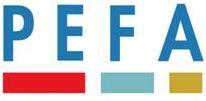Posted by Peter Murphy

In 2010, the Ministry of Finance and Economic Development, Government of Mauritius (MoFED) requested the Fiscal Affairs Department (FAD) of the International Monetary Fund (IMF) to assist in carrying out a Public Expenditure and Financial Accountability (PEFA) assessment for Mauritius. The IMF, with support from the World Bank (WB) and the European Union (EU), agreed to assist the government in an external validation of a PEFA self-assessment and a formal agreement was signed in September 2010. This report, which has now been published, represents a good example of successful cooperation between a national government and multilateral institutions in leveraging the possibilities of a self assessment approach.
The 2010 PEFA report shows Mauritius continues to perform well against the PEFA benchmarks. The dimension scores show progress compared to the 2007 PEFA assessment, with 27 out of the 31 reported ratings, higher or equal to those obtained in 2007. Of these 24 criteria are rated at the A or B level. These positive results have been achieved despite the challenges faced in the wake of the recent global financial crisis. Further work is required in a few areas related to expenditure composition variances, coverage of extra budgetary unit transactions and legislative scrutiny. The results of this diagnostic will be used as an input to future PFM reform.
In a small number of areas challenges were evident in utilizing the PEFA framework. These included; i) assessing the impact of a few large extra budget unit operations on government operations; ii) allowing for the relatively small size of the country which reduced the viability of requiring high levels of coverage for very small operations; iii) allowing relatively long time frames for particular processes and iv) making comparisons with previous ratings. In all cases a rigorous validation approach was adopted with advice being sort from the PEFA secretariat where necessary.
Mauritius has achieved remarkable success since its independence in 1968, with one of the highest per capita incomes in Africa. Gross domestic product (GDP) per capita increased from US$1,295 in 1980 to US$7,303 in 2010. Underpinning this impressive performance has been macroeconomic and political stability, robust institutions, an efficient administration as well as a favorable regulatory environment and financial system.
An external PEFA assessment, undertaken in 2007, suggested Mauritius had a relatively sound PFM system, but identified some weaknesses particularly in the area of budget formulation. The MoFED has therefore focused over the last few years on strengthening this area, through the progressive introduction of program based budgeting (PBB), as well as complementary legislative and organizational reforms necessary to support PBB implementation.
The key objectives of the new 2010 PEFA assessment were to provide an up-to-date quantitative and qualitative assessment of the PFM framework. This new assessment aimed to inform a government review of the performance of its ongoing PFM reform program through comparison with a baseline PEFA assessment undertaken in 2007. The assessment also provides an input to the design of further PFM reform activities and to the fiduciary and procurement reviews undertaken by co-operating partners.
Self Assessment Approach
A distinguishing feature of the 2010 PEFA assessment from previous diagnostic exercises was the adoption of a self assessment approach. This approach was agreed on the basis that the MoFPED was already familiar with what a PEFA exercise entailed, that it was willing to provide the necessary input for data collection, analysis and drafting of an initial assessment and that the organizational, capacity and skills existed to undertake a self assessment. In the event the authorities established a strong technical team of the Ministry of Finance and Economic Development (MoFED) officials, reporting to Mr. Ali Mansoor, Financial Secretary, and led by Mr. Gerard Bussier, Deputy Director, to coordinate the assessment process.
A concept paper outlining the details of the PEFA exercise was agreed between the MoFED and FAD. This outlined in detail the implementation methodology, the roles and responsibilities of the stakeholders, the consultation and reporting arrangements, a detailed implementation plan and the skills and experience required by both internal assessment and external validation teams. The IMF external team leader visited Mauritius in September 2010 and discussed in detail the implementation approach and the application of the methodology with the technical team and other stakeholders as well as providing training on the use of the methodology. The concept paper formed the technical foundation for the contract between government of Mauritius and IMF, with the FAD input being financed by the government of Mauritius.
Following the initial guidance the technical team undertook a self-assessment in conjunction with MoFED departmental heads. During the drafting process remote support for technical issues arising was provided by the FAD. As a result of an intensive effort during October and November 2010 by the technical team and effective ownership and commitment by the MoFED, a comprehensive and commendable draft PEFA report was submitted to the FAD for validation by the external team in mid-November 2010. In parallel to this exercise it was agreed that World Bank would provide, a senior procurement and a senior accounting expert, and EU would finance a senior revenue administration expert to join the FAD led external team. The external team was staffed with skilled and experienced personnel to undertake the validation exercise as soon as the self assessment phase was complete.
The external team visited Mauritius in November 2010 and held extensive discussions with the government technical team and senior government officials and other stakeholders. The external team reviewed the draft PEFA report to ensure the ratings were supported by credible evidence and a revised validated PEFA report was produced by the external team for presentation and initial discussion with government in February 2011. The validation discussions were tough but held in a spirit of mutual cooperation and accountability with both sides keen to ensure a credible and high quality outcome. This was followed by a series of rigorous internal and external peer review processes including review by the PEFA secretariat. Once the reviews were complete and final agreement reached with the government of Mauritius in July 2011 the report was submitted to the IMF Board for approval and publication of the PEFA report occurred in September 2011. During this period the mission also prepared technical recommendations based on PEFA findings as one input to the ongoing development of a new PFM reform action plan.
Note: The posts on the IMF PFM Blog should not be reported as representing the views of the IMF. The views expressed are those of the authors and do not necessarily represent those of the IMF or IMF policy.





